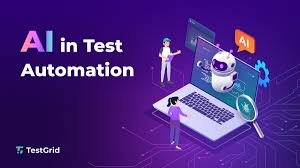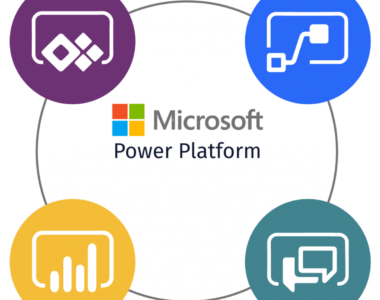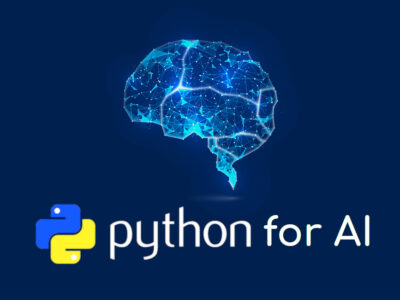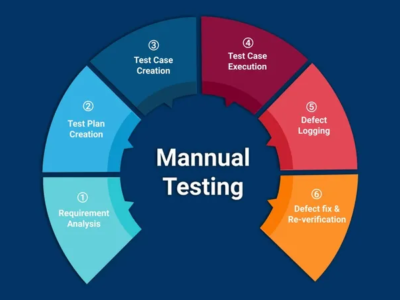Automation Testing Bootcamp Course Overview
The Automation Testing Bootcamp is an in-depth, hands-on program designed to teach participants the fundamentals of automation testing and provide them with practical skills in using test automation tools. This course covers a variety of automation frameworks and tools, including Selenium WebDriver, TestNG, JUnit, Cucumber, Jenkins, and more. The bootcamp helps participants master scripting languages such as Java or Python and understand how to integrate automated tests within a Continuous Integration/Continuous Deployment (CI/CD) pipeline.
By the end of this bootcamp, participants will be able to develop, execute, and manage automated test cases for web applications, mobile applications, and APIs, and integrate these tests into modern DevOps practices.
Key Learning Objectives:
- Understand the principles of software automation testing and the differences between manual and automated testing.
- Gain proficiency in using automation tools like Selenium WebDriver, TestNG, and JUnit for building test scripts.
- Learn scripting languages such as Java or Python to write effective automation scripts.
- Design and develop automation frameworks for scalable and maintainable test suites.
- Implement data-driven, keyword-driven, and hybrid test frameworks.
- Automate testing for web, mobile, and API applications.
- Integrate automated tests into CI/CD pipelines using Jenkins, Docker, and cloud platforms.
- Understand behavior-driven development (BDD) with Cucumber and Gherkin.
Modules Covered:
Module 1: Introduction to Automation Testing
- Automation Testing Overview: Understanding the need for automation, benefits, and challenges.
- Manual vs. Automated Testing: Comparison, use cases, and when to automate.
- Automation Testing Process: Phases from planning to execution and reporting.
- Types of Automation Testing: Functional, regression, load, and performance testing.
- Automation Tools Overview: Introduction to popular automation tools like Selenium, Appium, and JMeter.
Hands-On: Introduction to setting up an automation testing environment and executing a simple automation script.
Module 2: Core Java or Python for Test Automation
- Basic Programming Concepts: Variables, data types, operators, control statements (if-else, loops).
- Object-Oriented Programming (OOP): Classes, objects, inheritance, polymorphism, encapsulation, and abstraction.
- File Handling: Reading and writing files for test data.
- Exception Handling: Managing errors in automation scripts.
- Collections Framework: Arrays, lists, maps, and how to use them in test automation.
Hands-On: Writing basic Java or Python scripts and using OOP principles to create reusable code for automation testing.
Module 3: Selenium WebDriver for Web Application Testing
- Introduction to Selenium: What is Selenium, and why is it used in test automation?
- Selenium WebDriver: Setting up WebDriver, configuring browsers (Chrome, Firefox, IE), and writing your first script.
- Locators in Selenium: Identifying web elements using XPath, CSS Selectors, ID, Name, LinkText, etc.
- Handling Web Elements: Interacting with text boxes, buttons, radio buttons, checkboxes, drop-downs, and dynamic web elements.
- Synchronization in Selenium: Implicit, explicit, and fluent waits to manage dynamic elements.
- Page Object Model (POM): Designing maintainable and scalable test automation scripts using the Page Object Model.
Hands-On: Automating a simple web application, locating elements, and creating scripts using Selenium WebDriver.
Module 4: TestNG and JUnit for Test Management
- Introduction to TestNG and JUnit: Overview of test frameworks and how they support automation testing.
- Annotations in TestNG and JUnit: @Test, @BeforeMethod, @AfterMethod, @BeforeClass, etc.
- Grouping Test Cases: Grouping and prioritizing test cases for execution.
- Data-Driven Testing: Parameterizing tests using Excel sheets, CSV files, or XML files.
- Assertions in TestNG and JUnit: Validating test results with assertions.
- Generating Reports: Configuring test reports using TestNG and JUnit.
Hands-On: Creating and running test suites using TestNG or JUnit, including data-driven tests and test reports.
Module 5: Framework Development and Advanced Selenium
- Types of Automation Frameworks: Data-driven, keyword-driven, and hybrid frameworks.
- Building a Data-Driven Framework: Creating an Excel-based framework for test data.
- Building a Keyword-Driven Framework: Automating test execution using keywords.
- Hybrid Framework: Combining data-driven and keyword-driven approaches for robust test automation.
- Handling Alerts, Frames, and Windows: Switching between windows, frames, and handling JavaScript alerts.
- Working with Dynamic Elements: Managing dynamic content and elements in modern web applications.
- Cross-Browser Testing: Running tests across different browsers and environments using Selenium Grid.
Hands-On: Developing a data-driven or hybrid automation framework for a web application using Selenium WebDriver.
Module 6: Mobile Application Testing with Appium
- Introduction to Appium: Overview of Appium for mobile automation.
- Appium Setup: Installing and configuring Appium for Android and iOS devices.
- Writing Appium Test Scripts: Automating mobile applications using Appium and WebDriver.
- Handling Mobile Gestures: Working with touch actions, swipes, scrolls, and taps.
- Mobile Testing Strategies: Testing mobile applications across various devices, emulators, and real devices.
- Appium with Selenium: Integrating Selenium and Appium for cross-platform testing.
Hands-On: Writing Appium scripts to automate an Android or iOS mobile application, and running tests on an emulator.
Module 7: API Testing Automation
- Introduction to API Testing: Understanding the role of API testing in software testing.
- REST and SOAP APIs: Basics of RESTful services, endpoints, and methods (GET, POST, PUT, DELETE).
- Using Postman for API Testing: Sending API requests, validating responses, and automating workflows.
- REST Assured for API Automation: Automating API tests using REST Assured and validating responses.
- Authentication Mechanisms: Testing APIs with OAuth, JWT, and other authentication methods.
- Data-Driven API Testing: Parameterizing API tests with data from external sources.
Hands-On: Automating API tests using REST Assured in Java or Python, validating responses, and reporting results.
Module 8: Continuous Integration and Continuous Testing
- Introduction to CI/CD: Overview of continuous integration and continuous delivery pipelines.
- Jenkins Setup and Configuration: Installing Jenkins and setting up automated build pipelines.
- Integrating Selenium with Jenkins: Running Selenium tests as part of a Jenkins job.
- Docker for Test Automation: Containerizing automation environments with Docker.
- Scheduling Automated Tests: Setting up test execution on a regular schedule or on every code commit.
- Reporting and Notifications: Configuring email notifications and reports for automated test results.
Hands-On: Configuring Jenkins to execute Selenium tests automatically as part of a CI/CD pipeline.
Module 9: Behavior-Driven Development (BDD) with Cucumber
- Introduction to BDD: Understanding the principles of behavior-driven development.
- Gherkin Syntax: Writing test scenarios in plain English using Given, When, Then structure.
- Cucumber Framework: Using Cucumber to automate tests based on Gherkin scenarios.
- Integration with Selenium: Running BDD scenarios with Selenium WebDriver for test execution.
- Benefits of BDD: Improving collaboration between developers, testers, and business stakeholders.
Hands-On: Writing and automating BDD test cases using Cucumber and Gherkin for a web application.
Module 10: Performance and Load Testing Overview
- Introduction to Performance Testing: Basics of performance testing, including load, stress, and endurance testing.
- JMeter for Load Testing: Setting up JMeter to simulate multiple users and measure application performance.
- Analyzing Performance Results: Understanding throughput, latency, and error rates from JMeter reports.
- Integrating Load Testing with CI/CD: Running performance tests as part of continuous delivery pipelines.
Hands-On: Creating load test scripts in JMeter and executing performance tests for a web application.
Capstone Project:
In the final module, participants will work on a real-world automation project where they will design and execute automated test cases for a web or mobile application. The project will involve:
- Creating a test automation framework (data-driven, hybrid, or keyword-driven).
- Automating test cases for functional and API testing.
- Integrating the tests into a CI/CD pipeline using Jenkins.
- Generating detailed test reports and managing test execution.
Who Should Attend?
- Manual testers looking to transition to automation testing.
- Developers interested in learning how to write automated test scripts.
- QA professionals who want to gain expertise in Selenium, TestNG, Jenkins, and other automation tools.
- IT professionals seeking to enhance their skill set in test automation and DevOps.
- Students and graduates aiming to build a career in software automation testing.
Course Features
- Lecture 0
- Quiz 0
- Duration 55 hours
- Skill level All levels
- Language English
- Students 27
- Assessments Yes






